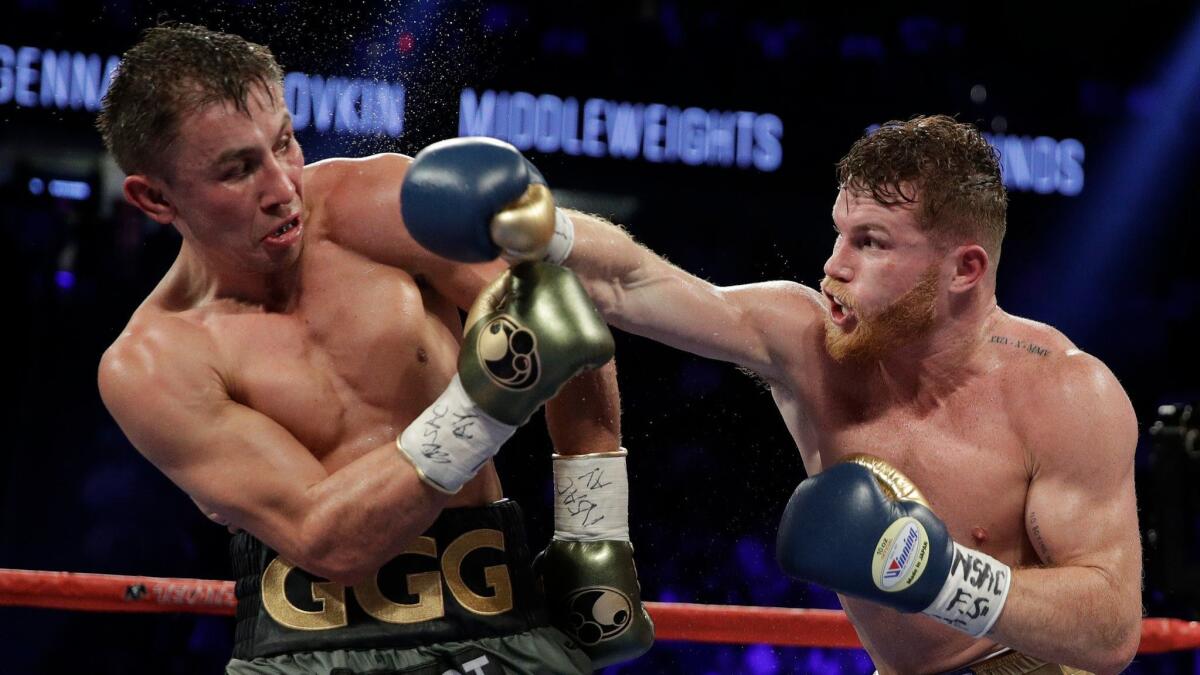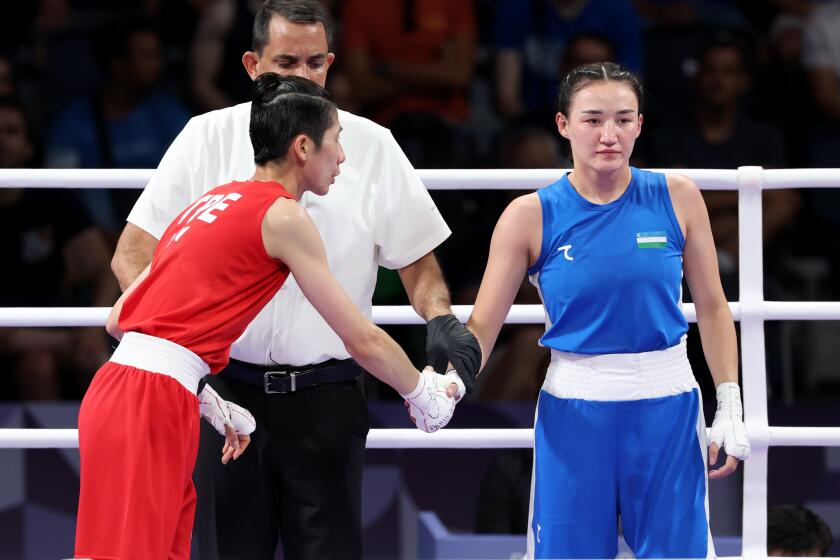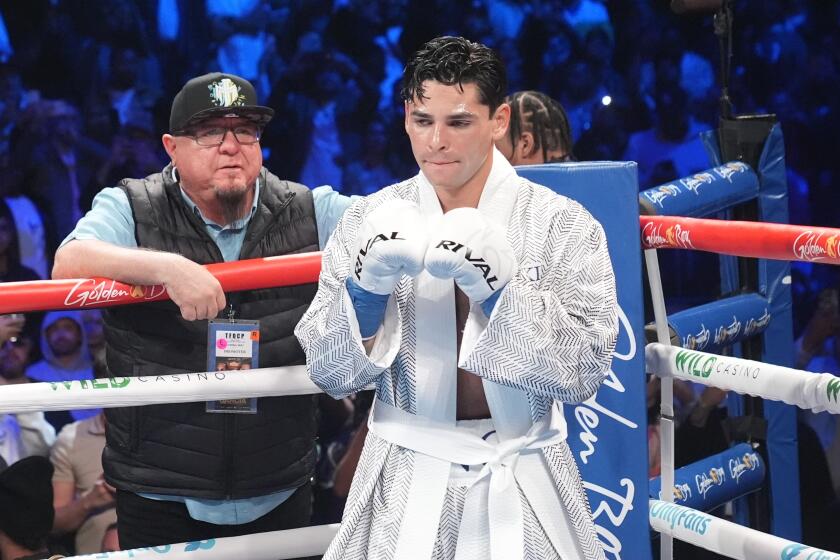WBC board supports proposal for five judges at major title fights

Reporting from Honolulu — The World Boxing Council Board of Governors on Wednesday supported a proposal to assign five judges to future major title fights.
Though the suggestion from the worldwide panel to add two more judges would need to be instituted by state and national commissions, who would likely work to gather input from fight promoters, the sanctioning body cast its plan as a necessary step of evolution from the sometimes controversial process that has been altered over time.
“There’s nothing more damaging to boxing than a controversial decision. In those title fights that are complicated and complex [to find unilateral support for three judges], the risk of a bad decision will [decrease] in a high level with five judges,” WBC President Mauricio Sulaiman told The Times after emerging from the board meeting.
“It’s a matter of getting the boxing industry onboard. We’ve already done some groundwork on it, and we’ll look to see if we can get it accomplished this year. The idea is likable. There will always be resistance to change, but we’re giving it an attempt.”
Sulaiman said that “with important fights coming up,” he’s planning discussions with various state commissioners, promoters and fighters to approve what he envisions as an improvement for the sport akin to the WBC’s stringent drug testing in its Clean Boxing Program and other past safeguards it’s pushed for.
In 2017, Nevada judge Adalaide Byrd turned in a 10-rounds-to-two scorecard favoring Canelo Alvarez over Gennady Golovkin in the most significant U.S. bout of the year to create a draw, and Alvarez then edged Golovkin by majority decision the next year thanks to debated 12th-round scores.
Previously, Timothy Bradley Jr. defeated Manny Pacquiao in a highly criticized 2012 decision that set the stage for the retirement one year later by a Bradley supporter, C.J. Ross, who then scored Floyd Mayweather Jr.’s 2013 rout of Alvarez even.
“The main thing we have to understand is that we have to address a situation that is a constant problem — officiating has to be addressed in several angles,” Sulaiman said. “We need to get active. There have been many issues with scoring over the history of the sport. Officiating has long been controversial, from the time when the referee was the sole arbiter raising the hand of the fighter he thought won, to the referee scoring with two other judges and now to three judges. This is an attempt to bring another element to bring the best out of the scoring and bring justice to the sport.”
Sign up for our boxing and MMA newsletter »
Sulaiman said the WBC board also approved voluntary random drug and alcohol tests for its judges and referees to assure competent officiating, while also agreeing to institute a new database and analytics rankings system that will be used to place the top judges in the most significant bouts while assigning others who aren’t working to live, online scoring of title fights as another means of evaluation.
Training will continue to be part of the officials’ job requirement, Sulaiman said.
Sulaiman said he hasn’t experienced alcohol and drug issues with active officials, but he added, “Alcoholism and addiction is an issue worldwide and boxing is not exempt of that. We’re only securing — on top of our Clean Boxing Program for fighters — that the officials working the fights are also absolutely clean.”
Sulaiman said the WBC additionally approved extending its Clean Boxing Program to all women’s champions and top-five-ranked fighters in all divisions, requiring those boxers to enroll in mandatory, year-round drug testing handled by the Nevada-based Voluntary Anti-Doping Assn.
Twitter: @latimespugmire
More to Read
Go beyond the scoreboard
Get the latest on L.A.'s teams in the daily Sports Report newsletter.
You may occasionally receive promotional content from the Los Angeles Times.










